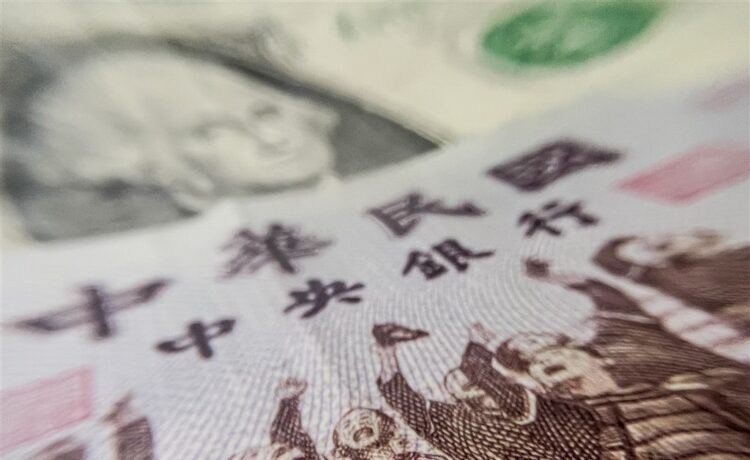Taipei, Dec. 9 (CNA) Market intervention by the local central bank to prevent further depreciation of the U.S. dollar against the Taiwan dollar sent Taiwan’s foreign exchange reserves to a new high at the end of November.
Data published by the Central Bank of the Republic of China (Taiwan) earlier this week showed the country’s forex reserves as of November broke a three-month falling streak and rose US$6.44 billion from a month earlier to a new high of US$567.52 billion.
The increase in forex reserves in November also hit the highest level since November 2022’s US$9.41 billion.
In addition to the central bank’s market intervention, Taiwan’s forex reserves also grew on the back of an increase in investment returns from portfolio management by the bank in November.
Last month, the U.S. dollar fell NT$1.159 or 3.71 percent to close at NT$31.260 against the Taiwan dollar on Nov. 30.
Analysts believe the market has turned upbeat after the U.S. Federal Reserve concluded its rate hike cycle in the wake of softer economic data and falling inflation.
At a press conference, Tsai Chiung-min (蔡炯民), head of the central bank’s Foreign Exchange Department, said investors at home and abroad have widely anticipated the Fed will leave its key interest rates unchanged in the upcoming policymaking meeting scheduled for Dec. 12-13 and even expected the American central bank will kick off a rate cut cycle starting from May or June 2024.
As a result, the U.S. dollar weakened sharply against the major non-greenback currencies with the U.S. treasury yields on the fall, lending support to non-greenback currencies in the month.
In addition to the Taiwan dollar, the U.S. dollar fell 4.56 percent against the pound sterling, dropped 4.54 percent against the Australian dollar, and shed 3.59 percent against the euro in November, Tsai said.
Even the Japanese yen, which has been in long-term weakness, rose 1.91 percent against the U.S. dollar in November, Tsai said.
Tsai said the central bank stepped in to prevent the U.S. dollar from falling further, a move aiming to “smooth out volatile capital flows to maintain an orderly foreign exchange market.’
A stronger Taiwan dollar prompted foreign institutional investors to move their funds into the country and registered a solid net buy on the local stock market, Tsai said.
According to the Financial Supervisory Commission (FSC), the top financial regulator in Taiwan, a net funds inflow totaled about US$11.26 billion in November, stopping a four-month streak of net fund outflow.
The FSC said foreign institutional investors bought a net NT$238.96 billion (US$7.61 billion) worth of shares on the main board and the over-the-counter market in November.
On the back of strong foreign institutional buying, the Taiex, the weighted index on the Taiwan Stock Exchange (TWSE), soared 1,432.58 points or 8.95 percent in November.
Riding the waves of a rally on the local stock market in November, the central bank’s data showed that the value of foreign investors’ asset holdings of Taiwan-listed stocks and bonds, and Taiwan dollar-denominated deposits rose to US$605.1 billion at the end of November from US$524.6 billion at the end of October.
Those holdings represented 107 percent of Taiwan’s total foreign exchange reserves as of the end of November, up from 93 percent at the end of October, the data indicated.
The local central bank has said it will maintain ample forex reserves to ensure domestic financial markets remain stable and guard against any sudden movement of funds out of the country by foreign institutional investors.



